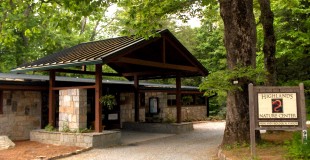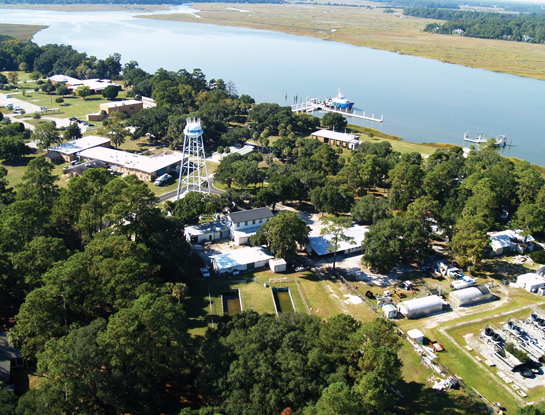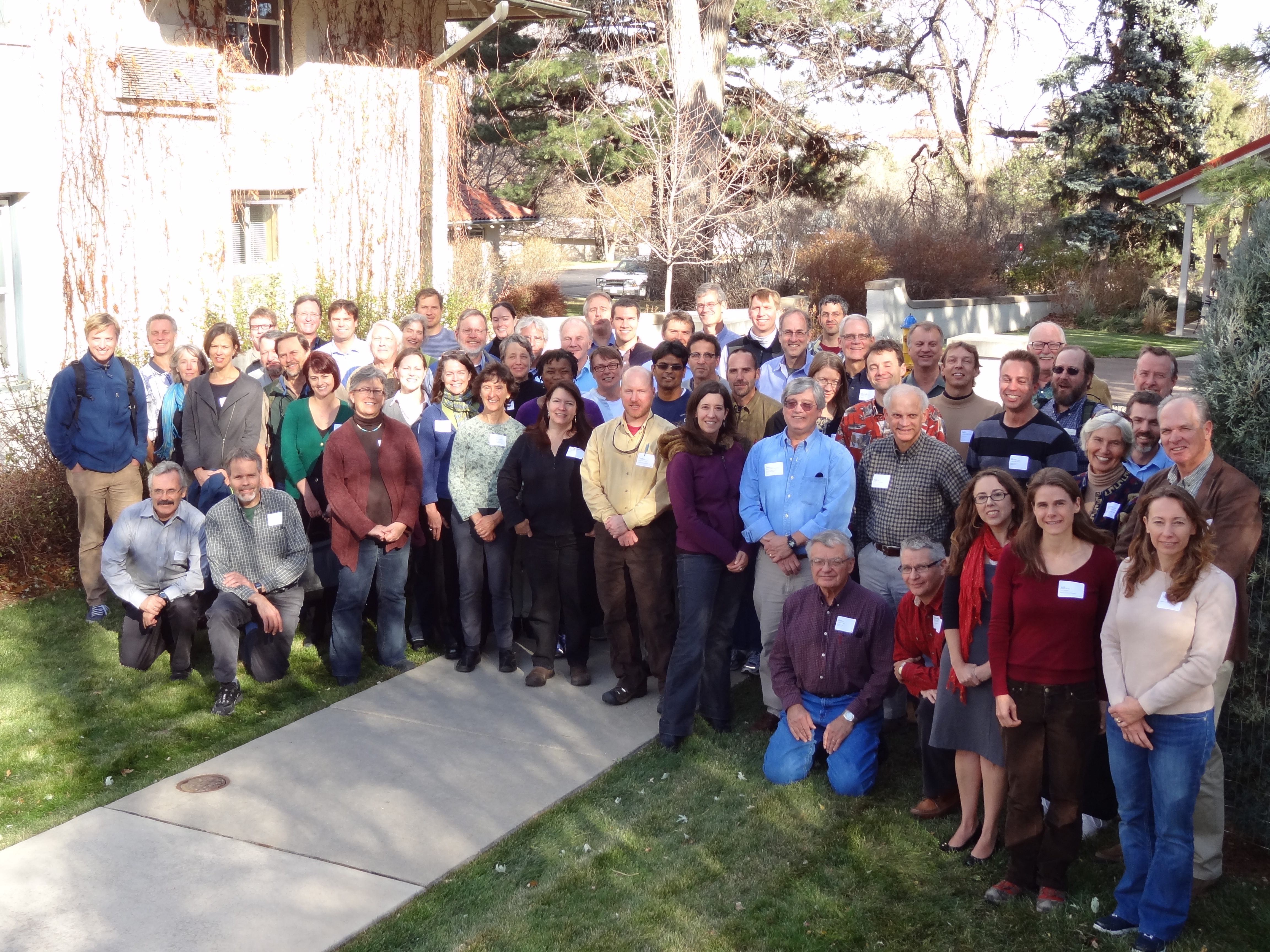Positioning Field Stations and Marine Laboratories for Emerging Initiatives in Scientific Research and Training
I.C. Billick (PI), I.G. Babb (Co-PI), B.D. Kloeppel (Co-PI),
J.C. Leong (Co-PI), J.G. Sanders (Co-PI), Jan Hodder, and Hilary Swain
Project Web Site

Highlands Biological Station: Nature Center
Highlands, North Carolina
PROJECT OVERVIEW
This project will position marine laboratories and field stations to meet emerging scientific
trends. As the human population grows and natural resource consumption increases,
understanding and managing the environment for sustainability has never been more important.
As institutions that foster place-based research, field stations and marine laboratories (FSMLs)
are a critical part of the nation’s infrastructure needed to address a wide range of environmental
issues. With over 350 field stations and marine laboratories distributed among all 50 states
managing a large amount of scientific equipment, research vessels, laboratories, living
accommodations, and land, there is a huge existing investment in the FSML network. Because
of the diversity, complexity, and enduring nature of field stations and marine laboratories,
strategic planning is critical for ensuring that such institutions are well positioned to meet the
dynamic and changing needs of scientists, students, and public they serve.
Under the guidance of a steering committee comprised of seven past, current, and future
presidents of the Organization of Biological Field Stations and National Association of Marine
Laboratories, we will prepare a series of reports to assist funders, managers, and users, in
making decisions concerning investment in, and management of, field stations and marine
laboratories. To accomplish this we will foster a dialogue among the stakeholders of field
stations and marine laboratories about the future of these institutions. Specifically, we will
convene a workshop involving a diverse set of participants to explore the relationship between
emerging scientific trends and field stations and marine laboratories. We will produce a report
based upon the results of the workshop. Second, we will conduct a survey to evaluate the
existing status of marine labs and field stations to better understand their capacity to serve
evolving science and education needs. We will disseminate this information widely. Finally, we
will prepare a Final Report, drawing from the results of the workshop and the survey, which
will make recommendations concerning strategic investments in field stations and marine
laboratories.

Skidaway Institute of Oceanography
Savannah, Georgia
INTELLECTUAL MERIT
Field stations and marine laboratories are a critical part of the nation’s scientific infrastructure.
They have helped facilitate a wide range of scientific findings, include the realization of the
acidification of rain, provided insights into the management of water supplies, assisted with the
discovery of Hanta virus, hosted research teams working on the development of radar, and
generated an understanding of the importance of incorporating biology into models for predicting
climate change. Additionally, they are central to several scientific initiatives, including the
National Ecological Observatory Network and the Ocean Observatory Initiative. Consequently
strategic planning for field stations and marine laboratories is critical to fostering
fundamental research in the biological sciences.
BROADER IMPACTS
Marine laboratories and field stations provide unique opportunities for students to receive
scientific training, for the general public to learn more about science, and to foster
communications between resource managers and scientists. Strategic planning will help ensure
that field stations and marine laboratories are well positioned to integrate modern science into
PUBLICATIONS
Final Report Link
Billick, I., I. Babb, B.D. Kloeppel, J.C. Leong, J. Hodder, J. Sanders, and H. Swain. 2013. Field Stations and Marine Laboratories of the Future: A Strategic Vision. National Association of Marine Laboratories and Organization of Biological Field Stations.
Workshop Report Link
National Association of Marine Laboratories and Organization of Biological Field Stations. 2013. Building and Operating the Field Stations and Marine Laboratories of the Future: Workshop Report. November 17-18, 2011.
Survey Report Link
National Association of Marine Laboratories and Organization of Biological Field Stations (NAML and OBFS). 2013. Place-Based Research Site Strategic Planning Survey: Results Summary.
ACKNOWLEDGEMENTS
We acknowledge funding from National Science Foundation grant DBI-1126161 to support this project.

Field Station and Marine Laboratory Workshop Participants
Colorado Springs, Colorado, November 2011
|

